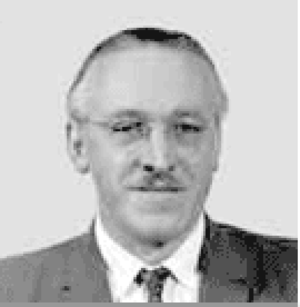J. Carson Mark (nonfiction): Difference between revisions
No edit summary |
No edit summary |
||
| Line 1: | Line 1: | ||
[[File:Jordan_Carson_Mark.gif|thumb|Jordan Carson Mark.]]'''Jordan Carson Mark''' (July 6, 1913 – March 2, 1997) was a Canadian-born mathematician best known for his work on developing nuclear weapons for the United States at the Los Alamos National Laboratory. Mark joined the [[Manhattan Project (nonfiction)|Manhattan Project]] in 1945, and continued to work at Los Alamos under the leadership of Norris Bradbury after World War II ended. He became the leader of the Theoretical Division at the laboratory in 1947, a position he held until 1973. He oversaw the development of new weapons, including the hydrogen bomb in the 1950s. On the hydrogen bomb project he was able to bring together experts like Edward Teller, Stanislaw Ulam and Marshall Holloway despite their personal differences. | [[File:Jordan_Carson_Mark.gif|thumb|Jordan Carson Mark.]]'''Jordan Carson Mark''' (July 6, 1913 – March 2, 1997) was a Canadian-born mathematician best known for his work on developing nuclear weapons for the United States at the Los Alamos National Laboratory. Mark joined the [[Manhattan Project (nonfiction)|Manhattan Project]] in 1945, and continued to work at Los Alamos under the leadership of [[Norris Bradbury (nonfiction)|Norris Bradbury]] after World War II ended. He became the leader of the Theoretical Division at the laboratory in 1947, a position he held until 1973. He oversaw the development of new weapons, including the hydrogen bomb in the 1950s. On the hydrogen bomb project he was able to bring together experts like [[Edward Teller (nonfiction)|Edward Teller]], [[Stanislaw Ulam (nonfiction)|Stanislaw Ulam]], and [[Marshall Holloway (nonfiction)|Marshall Holloway]] despite their personal differences. | ||
In July and August 1958, and again the following year, Mark was a scientific adviser to the United States delegation at the Conference of Experts on Detection of Nuclear Explosions. He served on the United States Air Force's Scientific Advisory Board, and its Foreign Weapons Evaluation Group. After he retired from Los Alamos in 1973 he served on the Nuclear Regulatory Commission's Advisory Committee on Reactor Safeguards, and was a consultant for the Nuclear Control Institute. | In July and August 1958, and again the following year, Mark was a scientific adviser to the United States delegation at the Conference of Experts on Detection of Nuclear Explosions. He served on the United States Air Force's Scientific Advisory Board, and its Foreign Weapons Evaluation Group. After he retired from Los Alamos in 1973 he served on the Nuclear Regulatory Commission's Advisory Committee on Reactor Safeguards, and was a consultant for the Nuclear Control Institute. | ||
Revision as of 18:17, 28 February 2018
Jordan Carson Mark (July 6, 1913 – March 2, 1997) was a Canadian-born mathematician best known for his work on developing nuclear weapons for the United States at the Los Alamos National Laboratory. Mark joined the Manhattan Project in 1945, and continued to work at Los Alamos under the leadership of Norris Bradbury after World War II ended. He became the leader of the Theoretical Division at the laboratory in 1947, a position he held until 1973. He oversaw the development of new weapons, including the hydrogen bomb in the 1950s. On the hydrogen bomb project he was able to bring together experts like Edward Teller, Stanislaw Ulam, and Marshall Holloway despite their personal differences.
In July and August 1958, and again the following year, Mark was a scientific adviser to the United States delegation at the Conference of Experts on Detection of Nuclear Explosions. He served on the United States Air Force's Scientific Advisory Board, and its Foreign Weapons Evaluation Group. After he retired from Los Alamos in 1973 he served on the Nuclear Regulatory Commission's Advisory Committee on Reactor Safeguards, and was a consultant for the Nuclear Control Institute.
In the News
Fiction cross-reference
Nonfiction cross-reference
External links:
- J. Carson Mark @ Wikipedia
Attribution:
